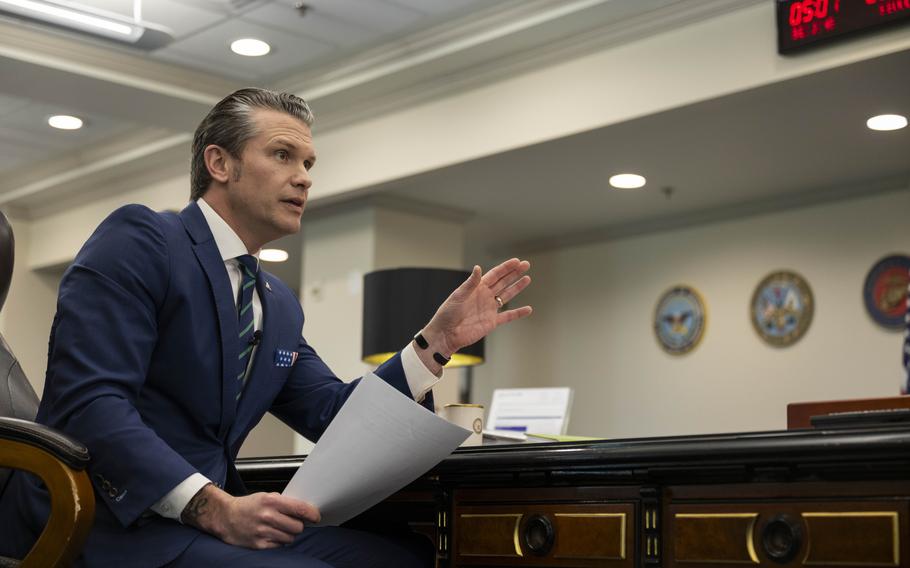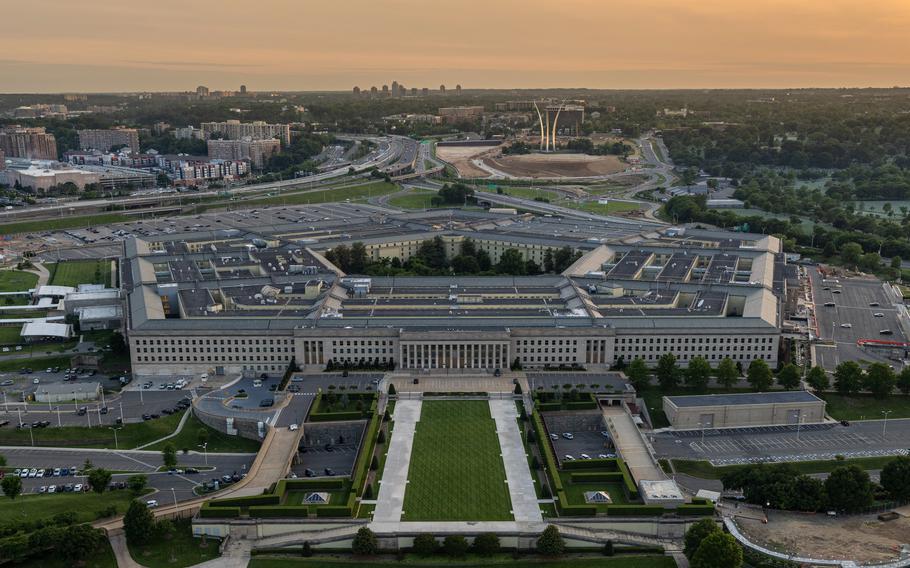
Defense Secretary Pete Hegseth delivers recorded remarks at the Pentagon on Feb. 20, 2025. Hegseth said he will immediately begin shifting billions of dollars away from nonlethal programs in connection with a broader reorganization of military priorities. (Alexander Kubitza/Defense Department)
Defense Secretary Pete Hegseth said Thursday that he will immediately begin shifting billions of dollars away from nonlethal programs in connection with a broader reorganization of military priorities.
In a late-night video address to the force, Hegseth said 8%, or roughly $50 billion, will be pulled from non-mission-essential programs in the current budget to direct the expenditures toward priorities at the top of the Trump administration’s agenda.
“That’s not a cut,” Hegseth said. “It’s refocusing and reinvesting existing funds into building the force that protects you, the American people.”
Hegseth’s comments come on the heels of reports that the Pentagon is looking to make sweeping reductions to its overall budget. The new Pentagon chief said that is not the case.
“In short, we want the biggest, most badass military on the planet, on God’s green earth,” he said.

An aerial view of the Pentagon in May 2023. Defense Secretary Pete Hegseth said Feb. 20, 2025, that he will immediately begin shifting billions of dollars away from nonlethal programs in connection with a broader reorganization of military priorities. (Alexander Kubitza/Defense Department)
Hegseth said the military is now working up plans to restructure the Pentagon budget. Funds redirected from programs deemed nonessential will go to supporting initiatives such as rebuilding the defense industrial base, border security and an array of weapons programs.
The Pentagon also is looking to trim overhead, beginning with a review of probationary employees, which generally refers to recent hires.
He said that jobs won’t be eliminated in an across-the-board manner and that performance will be considered.
“We’re starting (cuts) with the poor performers among our probationary employees because it’s common sense that you want the best and brightest,” Hegseth said.
Federal employee probation typically lasts one or two years after hiring. Many of those employees haven’t had a performance evaluation, which usually comes after a year on the job.
In other departments, such as the Department of Veterans Affairs, employees say they received termination notices for performance reasons shortly after going through orientation.
Hegseth added that the Defense Department will “be aggressive up and down the chain” to ensure that “the best and brightest are promoted based on merit.”
A hiring freeze also will be implemented to review employment practices in a manner that prioritizes top performers, he said.
Meanwhile, Elon Musk’s Department of Government Efficiency is at work inside the Pentagon.
Hegseth said DOGE staff will be looking for signs of waste and redundancies and “the last vestiges” of diversity, equity and inclusion programs, as well as initiatives dealing with climate change.
DOGE also will look for cuts inside military headquarters and other “top-line stuff that allows us to reinvest elsewhere,” Hegseth said.